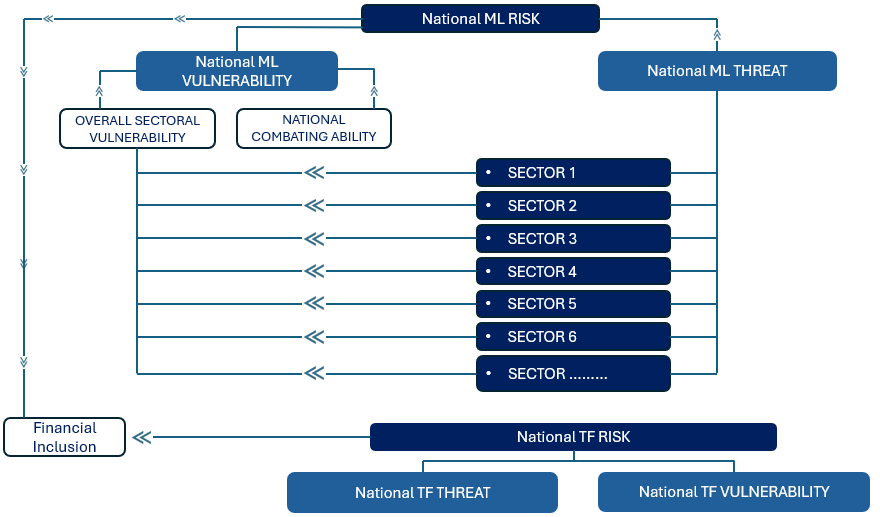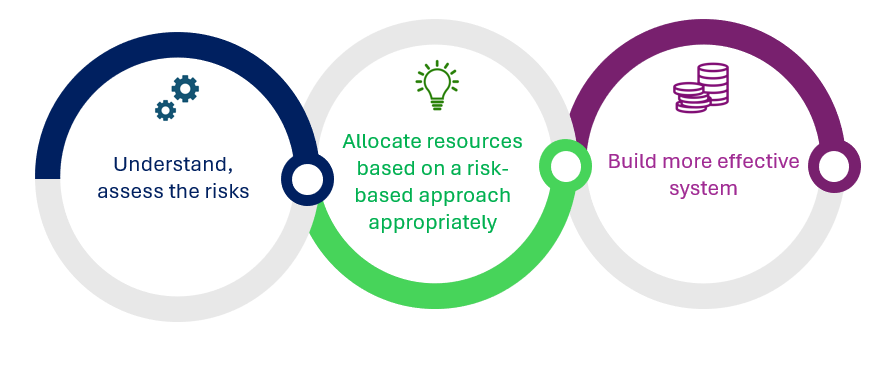In maintaining a strong and effective anti-money laundering, combating the financing of terrorism and the financing of proliferation of weapons of mass destruction (AML/CFT/PF) system, preventing criminals from abusing the financial system and other sectors, and eliminating vulnerabilities, it is crucial for a country to assess and understand its ML/TF/PF risks and implement national policies and strategies that are commensurate with the risks identified to mitigate the risks optimally.
The purpose of the national risk assessment (NRA) is to realistically assess the threats, risks, and vulnerabilities of ML/TF/PF, to effectively allocate the limited resources of competent law enforcement, prosecutors, courts, and regulatory agencies, to develop an effective action plan, and to reduce risk and vulnerability. Accordingly, it is significant to effectively implement national policies and strategies, ensure financial stability, and allocate resources appropriately by focusing measures on AML/CFT/PF in high-risk sectors.
FATF Recommendations 1 and 2 require countries to identify, assess, and understand the AML/CFT risks for the country, while adopting a risk-based approach (RBA) to ensure that measures to prevent or mitigate ML/TF are commensurate with the risks identified. In this regard, Mongolia conducted the first NRA in 2016, while the second NRA was conducted in 2020-2021 in accordance with the "National Money Laundering and Terrorist Financing Risk Assessment Methodology" developed by the World Bank. /Photo 1/
NRA is a large-scale national task that requires the contribution of public and private sectors from all related sectors. It is important to improve the actual results of operations related to AML/CFT/PF, enhance the outcomes, and increase the value of the system.


